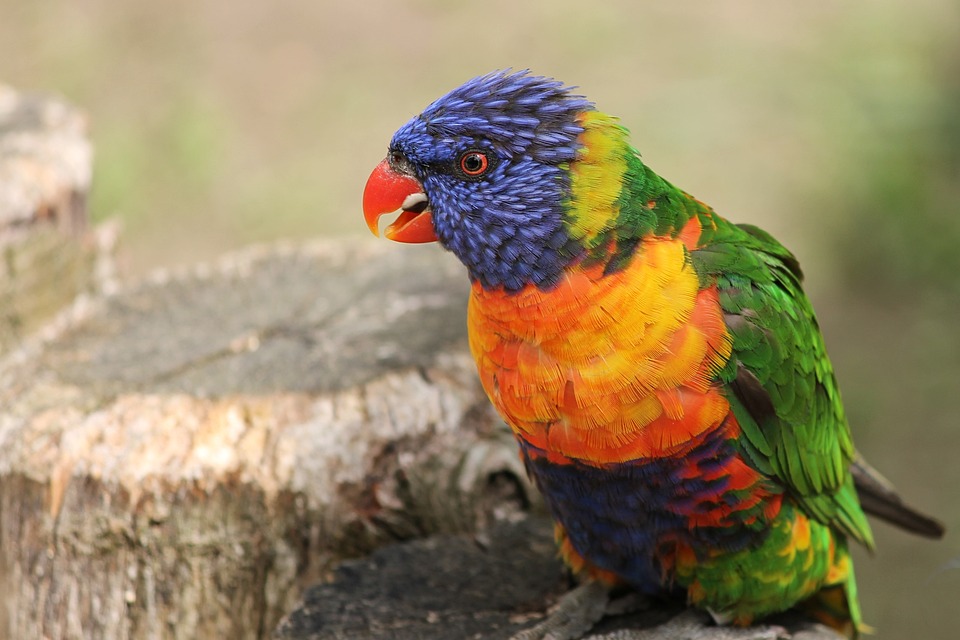Parrot owners often adore their feathered friends and want the best for them. However, it is not uncommon for parrots to develop possessive behaviors towards their toys or food bowls. While possessiveness is natural to some extent, excessive possessiveness can lead to aggression and territorial issues. In this article, we will explore effective strategies to discourage excessive possessiveness in parrots, promoting a harmonious and balanced environment for both the owner and the parrot.
Before diving into the solutions, it is important to understand why parrots may become excessively possessive. Parrots are highly intelligent creatures with a strong instinct to protect their resources. In the wild, they would fiercely guard their food and nesting sites. This instinct can carry over into their behavior as pets, causing possessive tendencies towards their toys or food bowls. Additionally, parrots are social animals and may exhibit possessiveness as a means of asserting dominance or seeking attention.
To discourage excessive possessiveness, it is crucial to create a positive environment that promotes trust and a sense of security for the parrot. Here are some effective strategies:
1. Provide Sufficient Mental and Physical Stimulation: Parrots need mental and physical stimulation to keep their minds engaged and prevent boredom. Offer a variety of toys, rotate them regularly, and provide opportunities for foraging to keep the parrot occupied and mentally stimulated.
2. Establish Consistent Routines: Parrots thrive on routine. Create a consistent schedule for feeding, playtime, and social interaction. This predictability will help the parrot feel secure, reducing the need for possessive behaviors.
3. Encourage Healthy Socialization: Parrots are highly social animals and require social interaction. Spend quality time with the parrot, engaging in activities that strengthen the bond. This will help alleviate any underlying insecurity that may contribute to possessive behaviors.
4. Promote Positive Reinforcement: Reward the parrot for desirable behaviors, such as sharing toys or allowing others near their food bowl. Use treats, praise, and affection to reinforce positive actions, encouraging the parrot to associate good behavior with positive outcomes.
While creating a positive environment is crucial, it may be necessary to address possessiveness directly. Here are some effective techniques:
1. Gradual Desensitization: Start by gradually exposing the parrot to situations that trigger possessiveness. For example, if the parrot becomes possessive of their food bowl, begin by moving it slightly further away during feeding time. Over time, gradually increase the distance until the parrot becomes comfortable with others being near their bowl.
2. Teaching the “Drop It” Command: Train the parrot to respond to the “drop it” command. Begin by offering a high-value treat in exchange for the toy or object the parrot is possessive of. With consistent training, the parrot will learn to willingly give up their possessions upon command, reducing possessiveness.
3. Positive Association: Encourage positive associations with sharing and allowing others near possessions. When the parrot willingly shares a toy or allows someone to approach their food bowl, reward them with praise, treats, or a favorite activity. This positive reinforcement will help reinforce the desired behavior.
Now, let’s address some frequently asked questions about parrot behavior and possessiveness:
Q: Can possessiveness be completely eliminated in parrots?
A: While possessiveness is a natural instinct in parrots, excessive possessiveness can be managed and reduced. By implementing the strategies mentioned above and providing a positive environment, possessive behaviors can be significantly discouraged.
Q: My parrot shows possessiveness towards me. What should I do?
A: If the parrot displays possessiveness towards you, it is important to establish clear boundaries. Encourage independence by providing stimulating toys and socializing with other family members. Ensure the parrot has a balanced social life and does not become overly reliant on you.
Q: Are certain parrot species more prone to possessiveness?
A: While possessiveness can be seen in various parrot species, some may exhibit it more prominently. For example, Amazon parrots and African grey parrots are known to be more prone to possessive behaviors. However, each parrot is unique, and individual personalities can vary.
Q: Is punishment an effective method to discourage possessiveness?
A: Punishment is generally not recommended as an effective method to discourage possessiveness in parrots. It can lead to fear, anxiety, and aggression. Positive reinforcement and reward-based training are more effective in promoting desired behaviors.
Remember, addressing possessiveness in parrots requires patience, consistency, and understanding. By implementing the strategies outlined in this article and seeking guidance from avian behavior experts if needed, a harmonious environment can be created where possessiveness is minimized, allowing the parrot to flourish and thrive.









